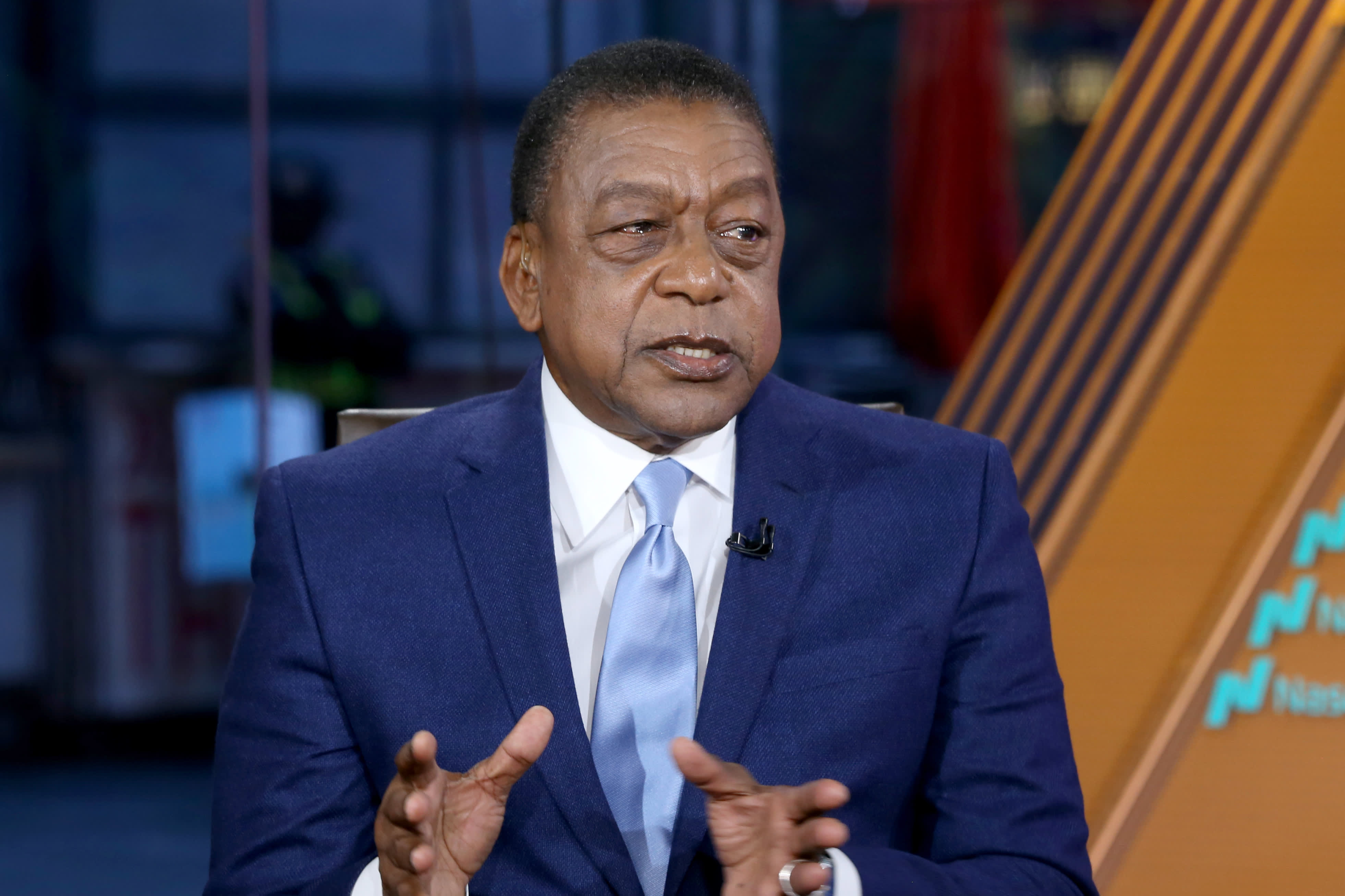Black Entertainment Television founder Robert Johnson doesn’t have much faith in a potential Joe Biden presidency. In fact, he doesn’t see the Democratic Party as a good choice for African Americans altogether, he told CNBC.
“I think Black Americans are getting a little bit tired of delivering huge votes for the Democrats, and seeing minimal return in terms of economic wealth and closing the wealth gap, the job creation and job opportunities,” Johnson, the millionaire entertainment magnate and philanthropist, told CNBC’s Hadley Gamble via video call.
“And Joe Biden was not an inspiring candidate for many Black Americans. And some of them stay at home. Some of them voted for Trump.”
The strong statements come amid a drawn-out 2020 election vote count that’s revealed President Donald Trump and Democratic opponent Joe Biden neck-in-neck in several battleground states. Among the many issues defining the cultural and political fault lines in America leading up to the election has been the topic of racial equality, with movements like Black Lives Matter backed by several Democratic candidates.
But Johnson, who became America’s first Black billionaire in 2000, doubts that Biden and the Democratic Party will deliver when it comes to African Americans’ needs, particularly when it comes to the economy.
“Black people do not embrace Biden as he never articulated a policy that went directly to the concerns of Black Americans,” the businessman said. “I don’t think Biden has that leadership quotient that’s going to allow him to do what is critical to bring the economy back, due to the trade-off between restoring the economy and fighting the pandemic.”
‘The devil I know’
Speaking to CNBC during a separate interview in September, Johnson described his view of Trump as through a business lens, though did not specifically endorse him. “Where I come out as a businessman, I will take the devil I know over the devil I don’t know any time of the week,” he said.
Just hours after Johnson’s remarks on Wednesday, Biden was declared as having won the state of Michigan, thanks largely to Democratic votes cast in Detroit, a majority-Black city that saw higher turnout this year than in 2016. Biden had campaigned heavily in Michigan along with his running mate Kamala Harris, who if elected would be the country’s first Black and first female vice president.
Robert Johnson
Anjali Sundaram | CNBC
Another focal point of this election has been the coronavirus pandemic, with Trump voters largely backing a full reopening of the economy while Biden has suggested he would put the country into another lockdown if scientists recommended it. More than 12 million people remain unemployed, a significant proportion of which are Black.
Trump has touted low Black unemployment during his term, overseeing the lowest U.S Black unemployment level in history before the pandemic, as well as his administration’s criminal justice reform policies.
“If you can’t bring the economy back for everybody, you darn sure can’t bring it back for Black Americans,” he said, “Because we’re at the bottom of the rung in terms of economic opportunity, and economic access to wealth, capital and income.”
Rep. Karen Bass (D-CA), Chair of the Congressional Black Caucus (CBC), speaks next to House Speaker Nancy Pelosi (D-CA) during a press event ahead of vote on the George Floyd Justice in Policing Act of 2020 on the East Front House Steps on Capitol Hill in Washington, U.S., June 25, 2020.
Yuri Gripas | Reuters
Racial wealth inequality has long crippled America’s productive potential, economists say. A Brookings Institute study found that in 2016, the average net worth of a White household was nearly 10 times greater than that of the average Black household.
“So how do you make Black Americans whole from an economic justice standpoint, or an equity standpoint,” Johnson continued, “if you don’t get the economy driving the jobs and the opportunities that have to filter down to Black Americans, since they’re already, as I said, at the bottom?”
The Biden campaign did not immediately respond to a CNBC request for comment, but the campaign website outlines a detailed “Biden Plan for Black America.” It lists priorities including pledges to “advance the economic mobility of African Americans and close the racial wealth and income gaps,” “expand access to high-quality education and tackle racial inequity in our education system,” and “Make far-reaching investments in ending health disparities by race,” among other things.
